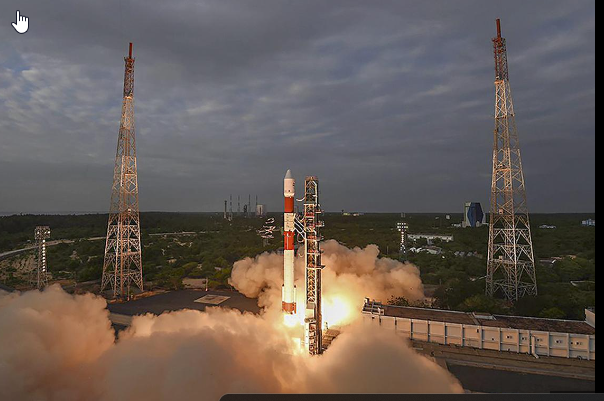India’s Second Spaceport to come up in Tamil Nadu
Recently, Prime Minister Narendra Modi laid the foundation stone for India’s second spaceport located in Kulasekarapattinam, Tamil Nadu. The ambitious Rs 950 crore facility will complement the existing spaceport in Andhra Pradesh and advance India’s space program.
Strategic Location for Efficient Launches
The new site spanning 2,233 acres in the coastal district of Tuticorin, Tamil Nadu was chosen for geographical advantages promising more efficient launches. Its location along the coast allows greater fuel savings compared to inland sites. The near-equatorial position also utilizes Earth’s rotation to boost launch speeds. The spaceport’s position adds flexibility for satellites to be placed in different orbits, complementing the tight launch trajectories possible from Sriharikota spaceport. This dual capability strengthens India’s existing launch dominance in the global small satellite market.
Timeline and Partners for the Project
The Tamil Nadu government has completed land acquisition for the smooth execution of this project led by the Indian Space Research Organisation (ISRO). Construction is expected to finish in two years for the spaceport to be operational by 2026. ISRO is collaborating with international partners including France and the US for technical support and supply of payload fairings to launch larger satellites from the new site. Discussions are also ongoing with Japan about providing assistance with the spaceport’s mobile servicing tower and assembly areas.
Enhancing Launch Capabilities
A key objective of the new spaceport is enhancing India’s satellite launch capabilities. Currently, ISRO relies on a single operational spaceport at Sriharikota in Andhra Pradesh established in the 1960s.
The nation has seen a surge in small satellite launches over the past decade. Kulasekarapattinam’s location and design will enable more frequent rocket launches while Sriharikota focuses on larger satellites. This balancing of roles will boost India’s domestic and commercial launch services.
Strengthening Presence in Global Market
The space sector has opened up significantly over recent years. The decreasing size and cost of satellites has expanded applications and enabled private sector growth.
India already captures over 50% of the small satellite launch market which is mainly due to ISRO’s reliable and cost-effective PSLV rocket. With the new spaceport boosting launch capacity, India can cater to growing global demand for dedicated small satellite missions and rideshare options.
Opportunities for Local Development
Besides the direct jobs and contracts from facility construction, spaceport operations will create extensive local opportunities. The quickening pace of launches opens prospects for private space industry clusters beside the spaceport.
For people in the region, ISRO projects typically spur skill development in manufacturing, engineering services and research institutes. Students also benefit from new academic programs tailored to space industry needs. Moreover, the high-tech presence seeds innovation through local startups.
Month: Current Affairs - March, 2024
Category: India Nation & States Current Affairs


